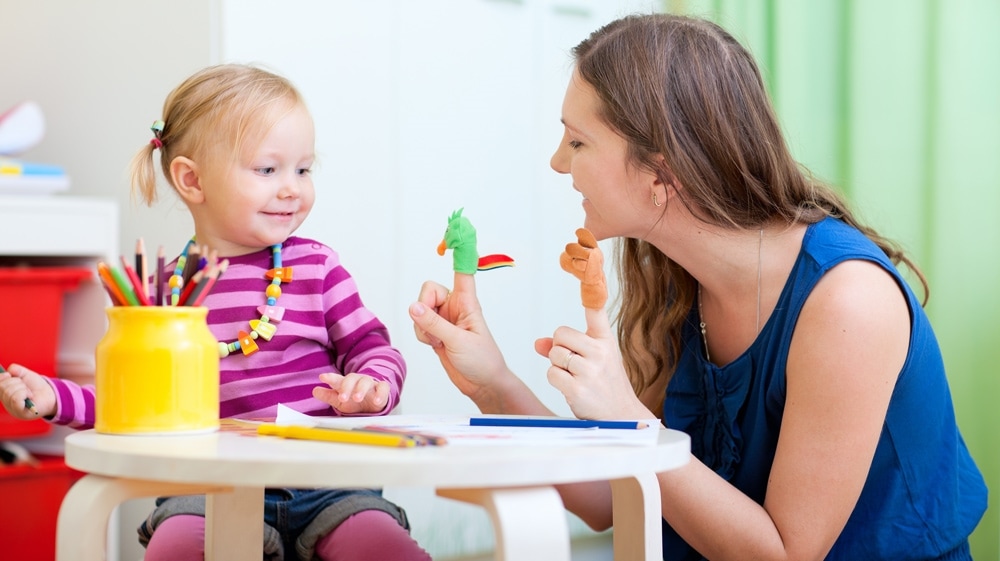Effective Strategies for Parenting a Depressed Child
As you support your depressed child, remember to recognize signs of mood changes and engage in therapy for emotional expression. Build trust through open communication and encourage expressing thoughts. Establish daily routines with consistent sleep and meal times. Prioritize self-care to effectively support your child. Set realistic expectations and seek professional help if needed. Educate yourself about depression and foster resilience through coping skills. These strategies provide a strong foundation for parenting a depressed child with empathy and understanding. Staying committed to these principles will help you navigate this challenging journey with your child.
Key Takeaways
- Establish open communication and trust through active listening.
- Encourage daily routines like consistent sleep and structured meals.
- Prioritize self-care to effectively support your child’s needs.
- Set realistic expectations and provide a positive, understanding environment.
- Seek professional help promptly when necessary for early intervention.
Recognizing Signs of Depression

When observing your child for signs of depression, pay attention to changes in their mood and behavior. Early intervention is vital in helping your child cope with depression. As a parent, your involvement is key in recognizing these signs and seeking appropriate treatment options.
Therapy benefits for depressed children are immense, providing a safe space for them to express their emotions and learn healthy coping mechanisms.
It is important to remember that depression is a treatable condition, and with the right support, your child can overcome it. By being proactive and seeking help early on, you can prevent the situation from escalating.
Therapy offers a structured environment where your child can work through their feelings and develop resilience.
Building Trust and Empathy
It’s important to establish trust through open communication with your child, creating a safe space for them to express their feelings without judgment.
Show empathy in your daily interactions, validating their emotions and letting them know you understand what they’re going through.
Trust Through Open Communication
Establishing trust through open communication is essential in building a strong foundation for supporting your depressed child. Trust building begins with creating a safe space where your child feels comfortable expressing their thoughts and emotions.
Encourage open dialogue by actively listening without judgment and validating their feelings. Communication strategies like asking open-ended questions and offering reassurance can help foster a sense of trust and understanding between you and your child.
Incorporating regular check-ins where you both share your experiences and emotions can strengthen your bond and show your child that you’re there for them unconditionally. Be mindful of your body language and tone of voice, as non-verbal cues can significantly impact how your child perceives your communication.
Remember to respect their boundaries and allow them to open up at their own pace.
Empathy in Daily Interactions
Fostering empathy in your daily interactions with your depressed child is key to building trust and strengthening your relationship. Engaging in empathy exercises can help your child feel understood and supported. Encourage open discussions about their feelings and experiences, and show emotional validation by acknowledging their emotions without judgment. Practice active listening by giving your full attention, maintaining eye contact, and reflecting back what they’ve shared to show you understand.
Incorporating daily affirmations into your routine can also boost your child’s self-esteem and sense of security. Offer words of encouragement and support regularly, reminding them of their worth and capabilities. These positive affirmations can serve as powerful reminders that they’re loved and valued.
Encouraging Open Communication

Encourage your child to express their thoughts and feelings openly and without fear of judgment to create a safe space for communication. Vital listening is essential in this process. When your child speaks, give them your full attention, maintain eye contact, and show understanding through verbal and non-verbal cues. Reflect back what they’ve shared to make sure you’ve understood correctly.
Additionally, emotional validation plays a significant role in fostering open communication. Acknowledge your child’s emotions without dismissing them. Let them know that it’s okay to feel the way they do and that you’re there to support them through it. Avoid minimizing their feelings or offering quick solutions. Instead, validate their emotions by saying things like, ‘I can see why you’d feel that way,’ or ‘It’s okay to feel sad/angry/frustrated.’
Establishing Daily Routines
Hey there, when it comes to parenting a depressed child, establishing daily routines can make a big difference.
Consistent sleep schedules and structured meal times provide stability and predictability, which can help your child feel more grounded and supported.
These routines can create a sense of security and control, which are essential for managing depression.
Consistent Sleep Schedule
Establishing a consistent sleep schedule is essential for supporting your depressed child’s overall well-being and mental health. Consistency in bedtime and wake-up times can help regulate your child’s internal body clock, promoting better sleep quality. Encouraging good sleep hygiene practices, such as creating a calming bedtime routine, can signal to your child’s brain that it’s time to wind down and prepare for rest.
A bedtime routine could include activities like reading a book together, listening to soft music, or practicing relaxation techniques. By consistently following this routine, you can help your child shift into a state of relaxation before bedtime, making it easier for them to fall asleep peacefully.
Additionally, ensuring that your child’s sleep environment is comfortable, quiet, and free of distractions can further support their ability to get a restful night’s sleep.
Structured Meal Times
To further support your depressed child’s well-being and daily routines, ensuring structured meal times can play a significant role in maintaining stability and promoting overall health. Meal planning is essential in providing your child with nutritious options that can positively impact their mood and energy levels. By incorporating a variety of fruits, vegetables, lean proteins, and whole grains into their meals, you can help support their mental and physical well-being.
Family dinners offer an excellent opportunity for bonding and creating a sense of routine. Sitting down together for meals can provide a comforting and stable environment for your child, fostering a sense of security and connection. Encouraging open communication during these family meals can also allow your child to express their feelings and concerns in a supportive setting.
Establishing set meal times can help regulate your child’s eating habits, which can be disrupted by depression. By creating a predictable schedule, you can provide structure and stability in their daily life, which is essential for managing their symptoms. Remember, small changes in routine, like structured meal times, can make a significant difference in your child’s well-being.
Prioritizing Self-Care for Parents

During times of emotional strain, it’s essential for parents to prioritize self-care to effectively support their depressed child.
Setting self-care boundaries is critical; it’s okay to take time for yourself without feeling guilty.
Managing stress is important, so consider incorporating relaxation techniques into your daily routine.
Personal hobbies can be a great way to unwind and recharge your emotional batteries.
Whether it’s reading a book, going for a walk, or practicing yoga, finding activities that bring you joy is significant.
Creating a Safe and Supportive Environment
As you focus on supporting your depressed child, creating a safe and supportive environment at home is key to their well-being and recovery. Start by ensuring that your child has a safe space where they feel comfortable expressing their emotions without judgment. This can be a designated area in their room or a quiet corner where they can retreat when feeling overwhelmed.
Additionally, cultivate a strong support network for your child by involving trusted family members, friends, or mental health professionals who can offer guidance and understanding.
Encourage open communication within the family, where everyone can freely discuss feelings and concerns. Validate your child’s emotions and provide reassurance that they aren’t alone in their struggles. Establishing routines and boundaries can also contribute to a sense of security and stability for your child.
Setting Realistic Expectations
As you navigate through parenting a depressed child, remember the importance of setting realistic expectations.
Clear communication channels will help you understand your child’s needs, while balanced support systems can provide the necessary resources.
Utilize mindful response techniques to foster a positive and understanding environment for both you and your child.
Clear Communication Channels
Establishing clear communication channels with your depressed child is essential for setting realistic expectations and fostering understanding within your family dynamic. Active listening plays an important role in this process. When your child expresses their thoughts and feelings, give them your full attention. Avoid interrupting and provide validating responses to show that you hear and understand them.
This active listening approach helps your child feel heard and supported, strengthening your bond and improving communication.
In addition to active listening, it’s essential to set healthy boundaries when communicating with your depressed child. Clearly define what behavior is acceptable and unacceptable, and stick to these boundaries consistently. Boundaries provide a sense of structure and security for your child, helping them feel more stable and understood.
Balanced Support Systems
To provide balanced support for your depressed child, it’s important to set realistic expectations that consider their mental health needs and capabilities. Supporting your child in developing supportive friendships can have a positive impact on their well-being. Encourage them to engage with peers who understand and uplift them, fostering a sense of belonging and connection.
Additionally, incorporating therapeutic recreation into your child’s routine can offer them a healthy outlet for self-expression and stress relief. Activities such as art therapy, nature walks, or yoga can help them manage their emotions in a constructive manner. By engaging in these recreational activities, your child can experience a sense of accomplishment and relaxation, contributing to their overall mental health.
Mindful Response Techniques
Consider tailoring your expectations to your child’s current emotional state and capabilities when implementing mindful response techniques for setting realistic goals. Mindful breathing and relaxation techniques can help your child manage stress and anxiety, allowing them to approach challenges with a clearer mind.
Encourage your child to practice deep breathing exercises when feeling overwhelmed, helping them center their thoughts and emotions.
Incorporating positive affirmations and gratitude journaling into your child’s routine can foster a more optimistic outlook. Encourage your child to write down things they’re grateful for each day, promoting a mindset focused on the positive aspects of their life.
Remind them of their strengths and achievements through affirmations, boosting their self-esteem and confidence.
Seeking Professional Help When Needed

When your child’s depression persists or intensifies, it’s important to seek professional help promptly. Early intervention is key in managing depression effectively.
Therapists can provide your child with the necessary tools and coping mechanisms to navigate their feelings and emotions. Therapy options such as cognitive-behavioral therapy (CBT) or interpersonal therapy can be beneficial in helping your child work through their struggles.
In some cases, medication may be recommended by a mental health professional to help alleviate severe symptoms of depression. It’s important to consult with a qualified healthcare provider to discuss the benefits and potential side effects of medication for your child.
Additionally, alternative treatments like mindfulness practices, art therapy, or yoga can complement traditional therapy approaches and support your child’s mental well-being.
Educating Yourself About Depression
Understanding depression is vital for parents to effectively support their child through their struggles and provide appropriate help. Educating yourself about depression can be an essential step in this process. Online resources can offer valuable insights into the condition, its symptoms, and potential treatment options. Support groups can also provide a sense of community and understanding, connecting you with others who are going through similar experiences.
In addition to online resources and support groups, seeking therapist recommendations is highly recommended. A professional can offer expert guidance on how to best support your child and navigate their treatment journey.
Remember, taking care of yourself is equally important. Engaging in self-care practices such as exercise, mindfulness, or hobbies can help you manage your own stress and emotions, allowing you to be a more present and supportive parent for your child.
Fostering Resilience and Coping Skills

To help your child navigate their struggles with depression, it’s important to focus on fostering resilience and teaching coping skills that can empower them to manage their emotions effectively.
Building resilience involves helping your child develop the ability to bounce back from challenges. Encourage them to see setbacks as opportunities for growth and learning.
By fostering coping skills, you equip your child with tools to handle difficult emotions. Teach them techniques like deep breathing, journaling, or engaging in hobbies they enjoy.
In addition to building resilience and coping skills, it’s essential to encourage self-care practices.
Help your child prioritize activities that promote their well-being, such as getting enough sleep, eating nutritiously, and engaging in physical exercise.
Encouraging mindfulness can also be beneficial. Teach your child to stay present in the moment and practice self-awareness. Mindfulness exercises like meditation or yoga can help them manage stress and improve their mental health.
Frequently Asked Questions
How Can I Help My Depressed Child Maintain Friendships?
Maintain open communication with your child about their feelings and experiences with friends. Encourage social support by helping them engage in activities they enjoy. Teach coping skills and ways to nurture positive peer relationships.
Is It Normal for My Child to Have Good Days Amidst Depression?
Yes, it’s normal for your child to have good days amidst depression. Encourage coping mechanisms and emotional regulation. Build a strong support system and offer positive reinforcement. Acknowledge these moments and celebrate small victories together.
Should I Involve My Child in Decision-Making About Their Treatment?
When considering treatment involvement, it’s essential to weigh the benefits of empowering your child with autonomy in decision-making versus potential drawbacks like overwhelming them. Balancing their input with professional guidance is key.
What Role Does Physical Activity Play in Managing Depression?
Engaging in outdoor activities and exercise can greatly help manage depression. Physical activity releases endorphins, which can uplift your mood. Additionally, being in nature and practicing mindfulness during activities can provide a sense of peace and calm.
How Can I Address Stigma Around Mental Health With My Child?
When addressing mental health stigma with your child, start by educating them about different emotions and encouraging open communication. Let them know it’s okay to talk about how they feel and to seek help when needed.
Conclusion
Remember, parenting a child with depression can be challenging, but with the right strategies and support, you can help them navigate through this difficult time.
By recognizing the signs of depression, building trust, encouraging open communication, and prioritizing self-care, you’re taking important steps towards supporting your child’s mental health.
Remember to seek professional help when needed and educate yourself about depression to better understand and help your child.
Stay strong and know that you aren’t alone in this journey.

Hey there! 👋 I’m a proud mom and passionate writer, sharing my parenting journey. 📝 Join me as I navigate the ups and downs of motherhood, offering tips, advice, and a sprinkle of humor along the way. 🌟







